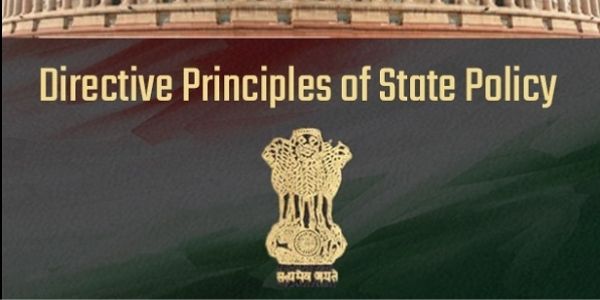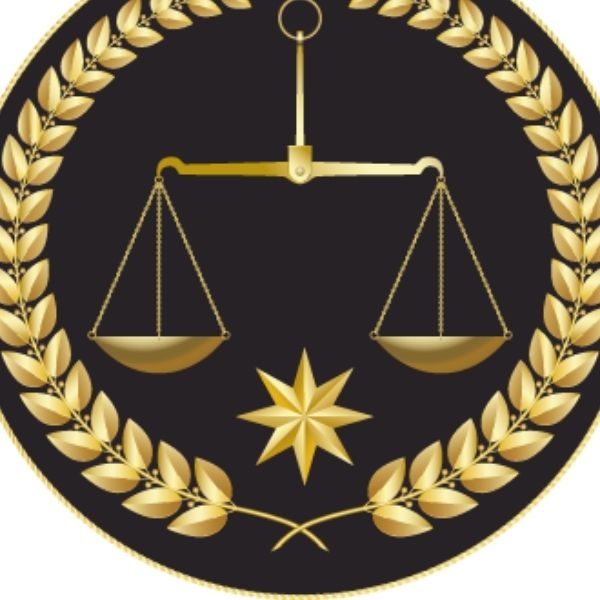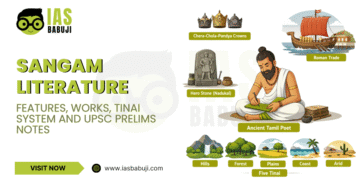In the article, we have added details of the Directive Principles of State Policy in Hindi. Thus, you will find information on the importance of the directive principles of state policy in the Indian constitution. Therefore, read the article and know about the DPSP of Indian Constitution articles and other related details. Try to note down the points while reading the article.
Introduction
In the first place, Articles 36-51 under Part-IV of the Indian Constitution deal with Directive Principles of State Policy (DPSP) in Hindi. Further, these are from the Constitution of Ireland, which had copied it from the Spanish Constitution. Besides, it is an essential concept for the UPSC exam in GS- II and the Political papers. In our other articles, we have added all the details of the IAS exam and UPSC’s other details.
What is the meaning of the Directive Principles of State Policy
One needs to know the meaning of Directive Principles of State Policy in Hindi. Further, the concept of Directive Principles of State Policy is the Spanish Constitution from it arrived in the Irish Constitution. Besides, they seek to establish economic and social democracy in the country.
Importance of Directive Principles of State Policy in Indian Constitution
It is essential to understand the importance of the directive principles of state policy in Hindi.
- These principles aim to to create social and economic conditions under which all the citizens can lead a good life.
- Further, they aim to provide social and economic democracy through a welfare state.
- The help in sustainable development, DPSP of indian constitution articles, aim to create a balance between economic progress and competition.
- Besides, they help in women rights like equal opportunity, equal wages, uniform civil code etc.
They are classified into the below sections. then, we have explained each one of them in detail below.
- Socialistic Principles,
- Gandhian Principles and,
- Liberal-Intellectual Principles.
Further, if you want to know more, you can go through the official website. Click Here.
Socialistic Principle
These are the principles that aim to provide social and economic justice.
- and Article 38 – Promote the welfare of the people by creating a social order through justice—political,social, and economic developemets.
- Article 39 –
- Equitable spread of material resources of the community for the common good
- Anticipation of concentration of wealth and means of production
- Same pay for equal work for men and women
- Securing of the health and strength of workers and children against forcible abuse
- Opportunities for the healthy development of children
- Article 39A – Promote equal justice and free legal aid to the poor
- Article 41 –
- Right to work
- Right to education
- and Right to public assistance
- Article 42 -:Make provision for just and humane conditions of work and maternity relief
- Article 43 : Safeguard a living wage, a decent standard of living and social and cultural opportunities for all workers
- and Article 43A – Take steps to secure the participation of workers in the management of industries
- Lastly, Article 47 – Raise the level of nutrition and the standard of living of people and to improve public health.
Gandhian Principles
- Article 40 – Arrange village panchayats and endow them with necessary powers and authority to enable them to function as units of self-government
- Article 43 – Encouragecottage industries on an individual or co-operation basis in rural areas
- and Article 43B – Promote voluntary formation, autonomous functioning, democratic control and professional management of co-operative societies
- Article 46 – Encourage the educational and economic interests of SCs, STs, and other weaker sections of the society and to secure them from social injustice and exploitation
- Article 47 – Prohibit the consumption of intoxicating drinks and drugs which are injurious to health
- Lastly, Article 48 – Prohibit the slaughter of cows, calves and other milch and draught cattle and to improve their breeds
Liberal-Intellectual Principles.
- Article 44 – Secure for all citizens a uniform civil code throughout the country
- Article 45 – Provide early childhood care and education for all children until they complete the age of fourteen years
- and Article 48 – Organise agriculture and animal husbandry on modern and scientific lines
- Article 49 – Protect monuments, places and objects of artistic or historic interest which are declared to be of national importance
- Article 50 – Separate the judiciary from the executive in the public services of the State
- Lastly, Article 51 –
- Encourage international peace and security and maintain just and honourable relations between nations
- Further, Foster respect for international law and treaty obligations
Examples of questions for the UPSC Exam
Now we will look into some of the examples of the questions for the exam. As it will give you an idea of the questions.
- Which part of the Indian Constitution deals with the Directive Principles of State Policy?
- Part III
- Part IV
- and Part V
- Part VI
Answer – Part IV
- Which of the below statements are not correctly matched?
- Fundamental duties- Part IV-A
- Directive principles of State policy- Part IV
- Fundamental rights- Part III
- none of these
Answer – 4
- Which of the below Articles contain Directive Principles of State Policy?
- 30 to 49
- 36 to 51
- 42 to 56
- 28 to 48
Answer – 36 to 51
- which article under DPSP proposes for the separation of the Judiciary from the executive?
1. Art. 51
2. Art. 50
3. Art. 49
4. Art. 48
Answer – 2
Then, there are many websites that help you by covering questions, you can visit and study for the exam.
Continued
So, above are some of the examples to know how questions will be asked in the exam. As we all know, the IAS exam comes with a vast syllabus, and it becomes essential for one to know the complete information. Further, there are three main stages in the exam: the preliminary exam, the main exam, and the interview round. One must clear all the states to become an IAS officer. Besides, to clear this exam, you have to work hard and put in all your special efforts. When you dream big, your hard work also should be more significant than that. Even though we see many people applying for the exam, in the end, only a few make it till the end. As the main exam is descriptive type, one must work hard and practice well for the exam.
Conclusion – Directive Principles of State Policy
In summary, in the article, you will get the complete details of the DPSP articles of the Indian constitution. We have explained everything in detail. If you are planning to apply for the IAS exam, you need to go through this article. If not everything, a brief understanding of all the articles is essential to know for the exam. So, we suggest you make the necessary points from the article, and it will help you in the exam. It is difficult to remember everything to earn their points and study them during the exam. Then, to help you with the same, we have gathered all the essential details. Read More. You will find the exam syllabus, books, tips, and more.
One cannot ignore this, and it will also affect your final results. Besides, one can join the classes to get the training for the IAS exam. There are many coaching classes in various cities, and they will help you with your exam preparations. But, it depends from one person to the other. However, many have cleared the exam without taking classes. So, that means this exam will not test your knowledge but also your hard work and efforts. So, to help you with the same, we have covered all the details of the classes in various cities, you can click here to know more on the same. In the end, what matters is your hard work. There are many toppers who have cleared the exam in one go. Then, one must take motivation from them to study for the exam.
FAQs
Lastly, we have added some FAQs for more details on the topic.
It made four changes in DPSPs.
It aims to create social and economic conditions under which the citizens can lead a good life.
Yes, the IAS exam is one of the tough exams in India because of its vast syllabus.
Editor’s Note | Directive Principles of State Policy
In brief, in the article, you will find the complete details of the importance of the DPSP (directive principles of state policy ) of the Indian constitution. Further, you will find the classification on the same, and it is important for the exam as well. Therefore, to get the best results in the exam, you have to go through this and make some important points. Besides, we have added some examples of the questions for the UPSC exam. Then, you can refer to the previous year papers to know about the question and for the related details. Then, in the above article we have given some links that will help you with the exam.
Besides, it is normal to get tensed during the exam, but prepare well without worrying about the results. One can put their hard work and efforts to clear the exam. Finally, we wish you good luck for the exams.










